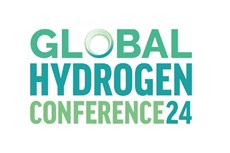Bionext completes test programme
Published by Callum O'Reilly,
Senior Editor
Hydrocarbon Engineering,
Bionext and its partners have successfully completed the test programme on BioTfueL® demonstration units, a crucial step in the development of this technology that will allow the production of low carbon footprint biokerosene.
This demonstration made it possible to validate, develop and optimise the process chain on a semi-industrial scale on four different types of biomass after 1000 hours of gasification and more than 1500 hours of torrefaction.
This success paves the way for the industrialisation of the torrefaction-gasification- Fischer-Tropsch synthesis chain for the flexible production of sustainable alternative fuels for aviation as well as road, sea, and rail transport from lignocellulosic biomass.
Based on the experimental results obtained, the partners are working to industrialise the BioTfueL technology with a view to its commercialisation in early 2022.
This is an important step aimed at positioning BioTfueL technology as an option to produce sustainable aviation fuels (SAF), allowing greenhouse gas emissions to be reduced by more than 90%. Bionext will actively promote the development of the technology through licensing and basic engineering packages commercialised by Axens. Axens will be the market-facing arm of the consortium.
Each BioTfueL industrial unit would allow the production of 30 to 100 000 tpy of SAF and would create several hundred agricultural, forestry and industrial jobs.
An innovative process
BioTfueL technology, whose demonstration units are located in Venette for torrefaction and Dunkirk (both in Hauts-de-France Region, France) for Syngas production and Fisher-Tropsch, is built on four key industrial process steps: torrefaction of biomass, gasification, treatment and purification of the produced synthetic gas and subsequent conversion into advanced biofuels via Fischer-Tropsch synthesis.
BioTfueL's innovative concept hinges on its capacity to process a broad spectrum of lignocellulosic biomasses, not competing with food applications. Thanks to its broad variety of potential feedstock, the technology can be deployed anywhere in the world. This flexibility will facilitate the yearly supply of any future industrial units and a potential reduction of its production costs.
Industrial partnership
The BioTfueL project was launched in 2010 with the ambition of testing, validating and optimising a completely integrated chain to produce advanced biofuels. The programme has been supported by the Bionext partners, by the French government via a subsidy of ADEME (France) and its Research Demonstrator Fund, the Hauts-de-France region and European Community via the European Regional Development Fund (ERDF) and by the French association of oil seed producers via the FASO fund.
The project is driven by Bionext, which coordinates the expertise brought by its six partners and shareholders: research organisations (IFP Energies nouvelles and the CEA), technology providers (Axens, Thyssenkrupp Industrial Solutions) and industrial players (Avril, TotalEnergies).
Laurent Bournay, General Manager of Bionext, said: “Based on these very promising achievements, several companies in the world have already expressed strong interest in commercial applications. The consortium is working on several studies for future industrial plants, based on local biomasses. The first industrial unit will be the next key step in positioning the BioTfueL technology as the leading route for biojet fuels with very low carbon footprints.”
Read the article online at: https://www.hydrocarbonengineering.com/clean-fuels/04082021/bionext-completes-test-programme/
You might also like
Viridi Energy signs 20-year agreement with Énergir
Viridi Energy, a renewable natural gas (RNG) platform, has signed a 20-year offtake agreement with Énergir, L.P.


